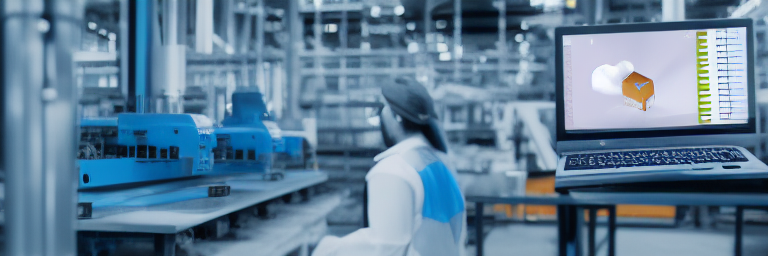In recent years, the manufacturing industry has experienced a profound transformation driven by advancements in Artificial Intelligence (AI) technology. One significant development in this field is the emergence of AI agents. These intelligent systems are revolutionizing manufacturing processes, enabling improved efficiency, precision, and productivity. In this article, we will explore the role of AI agents in manufacturing and the impact they are making across various aspects of the industry.
Enhancing Automation
AI agents are transforming traditional manufacturing automation by infusing intelligence into machines and production lines. With their ability to analyze vast amounts of data in real-time, AI agents optimize production schedules, streamline operations, and improve overall productivity. These agents possess the capacity to monitor machine performance, detect anomalies, and predict maintenance needs, thereby minimizing downtime and maximizing output.
Improved Quality Control
Maintaining consistent product quality is a critical factor for any manufacturing company. AI agents play a vital role in this domain by leveraging computer vision and machine learning algorithms to conduct rigorous quality control inspections. These agents can identify defects or irregularities in real-time, ensuring that only high-quality products reach consumers. By automating this process, manufacturers can reduce waste, lower costs, and enhance customer satisfaction.
Intelligent Supply Chain Management
Effective supply chain management is essential for the success of any manufacturing operation. AI agents optimize this process by leveraging predictive analytics to forecast demand, optimize inventory levels, and manage logistics. These agents can analyze historical data, market trends, and customer behavior to make accurate predictions, leading to reduced inventory holding costs and improved customer service. AI agents also enhance transparency and traceability, allowing manufacturers to address potential disruptions promptly.
Worker Assistance and Safety
AI agents are not limited to improving operational efficiency; they also support workers on the shop floor. Collaborative robots, known as cobots, work alongside human workers to enhance productivity and safety. These AI-powered machines can perform repetitive or physically demanding tasks, reducing the risk of injuries and freeing up human operators to focus on more complex and creative responsibilities. AI agents can also provide real-time guidance and insights to workers, increasing their effectiveness and skill levels.
Continuous Improvement and Adaptability
The learning capabilities of AI agents enable continuous improvement in manufacturing processes. These agents can analyze vast datasets and identify patterns or inefficiencies that may not be apparent to human operators. By leveraging machine learning algorithms, AI agents can make data-driven recommendations for process optimization, energy efficiency, and waste reduction. Furthermore, AI agents can quickly adapt to changing production requirements and dynamically adjust parameters to ensure optimal performance.
Challenges and Considerations
While AI agents offer tremendous benefits to the manufacturing industry, their implementation does come with challenges. Integrating AI systems into existing manufacturing infrastructure requires careful planning, training, and data integration. Privacy and security concerns surrounding data collection and usage must also be addressed. Moreover, the potential displacement of human workers raises ethical and social considerations that need to be carefully navigated.
AI Agents in Manufacturing: Looking Ahead
AI agents have emerged as powerful tools revolutionizing the manufacturing industry. These intelligent systems enhance automation, improve quality control, optimize supply chain management, and provide invaluable assistance to workers. By harnessing the capabilities of AI agents, manufacturers can achieve higher productivity, increased efficiency, and improved product quality. As the manufacturing landscape continues to evolve, AI agents will play a pivotal role in shaping the factories of the future, ensuring a competitive edge in a rapidly changing world.

